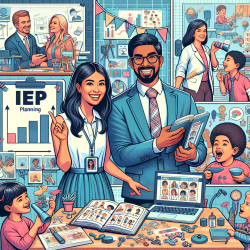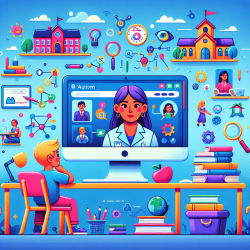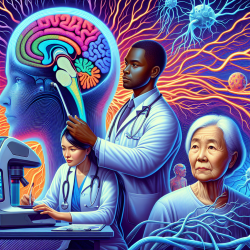Introduction
In the evolving landscape of global healthcare, Artificial Intelligence (AI) and Big Data Analytics (BDA) are emerging as transformative tools. A recent study titled "Leveraging Responsible, Explainable, and Local Artificial Intelligence Solutions for Clinical Public Health in the Global South" sheds light on how these technologies can address healthcare challenges, particularly in resource-limited settings.
Understanding the Global South Context
The Global South, comprising countries in Africa, Asia, and Latin America, faces unique healthcare challenges, including limited access to healthcare services, high disease burdens, and inadequate infrastructure. AI and BDA offer potential solutions by enabling more efficient healthcare delivery and improved public health outcomes.
The Role of AI and BDA
AI and BDA can revolutionize healthcare by:
- Enhancing disease surveillance and early warning systems.
- Improving diagnostic accuracy and treatment efficacy.
- Facilitating data-driven decision-making in healthcare policy.
- Identifying health trends and predicting outbreaks.
These technologies allow for the integration of diverse data sources, enabling healthcare providers to make informed decisions that can significantly improve patient outcomes.
Ethical and Regulatory Considerations
Implementing AI and BDA in the Global South requires careful consideration of ethical and regulatory challenges. The study emphasizes the importance of developing responsible AI frameworks that are fair, inclusive, and transparent. Key considerations include:
- Ensuring data privacy and security.
- Mitigating biases in AI algorithms.
- Establishing clear regulatory frameworks for AI deployment.
Addressing these challenges is crucial for building trust and ensuring the successful implementation of AI solutions.
Lessons from the ACADIC Project
The Africa-Canada Artificial Intelligence and Data Innovation Consortium (ACADIC) project offers valuable insights into the practical application of AI and BDA in the Global South. Key lessons include:
- The importance of community partnerships for data collection and implementation.
- The need for government buy-in to influence policy and access data.
- The value of diverse expertise in research and implementation teams.
- The necessity of creating networks for mutual support and knowledge sharing.
Future Directions
To maximize the benefits of AI and BDA in the Global South, future efforts should focus on:
- Strengthening local research and healthcare capacity.
- Developing flexible modeling frameworks for rapid response to health emergencies.
- Increasing funding for AI and BDA initiatives.
- Enhancing AI modeling capacity through training and infrastructure development.
These efforts will ensure that AI and BDA are used responsibly and effectively to improve health outcomes in the Global South.
Conclusion
AI and BDA hold significant promise for transforming healthcare in the Global South. By addressing ethical and regulatory challenges and leveraging lessons from projects like ACADIC, practitioners can harness these technologies to improve clinical outcomes and build resilient healthcare systems. To delve deeper into this research, please read the original paper Leveraging Responsible, Explainable, and Local Artificial Intelligence Solutions for Clinical Public Health in the Global South.










